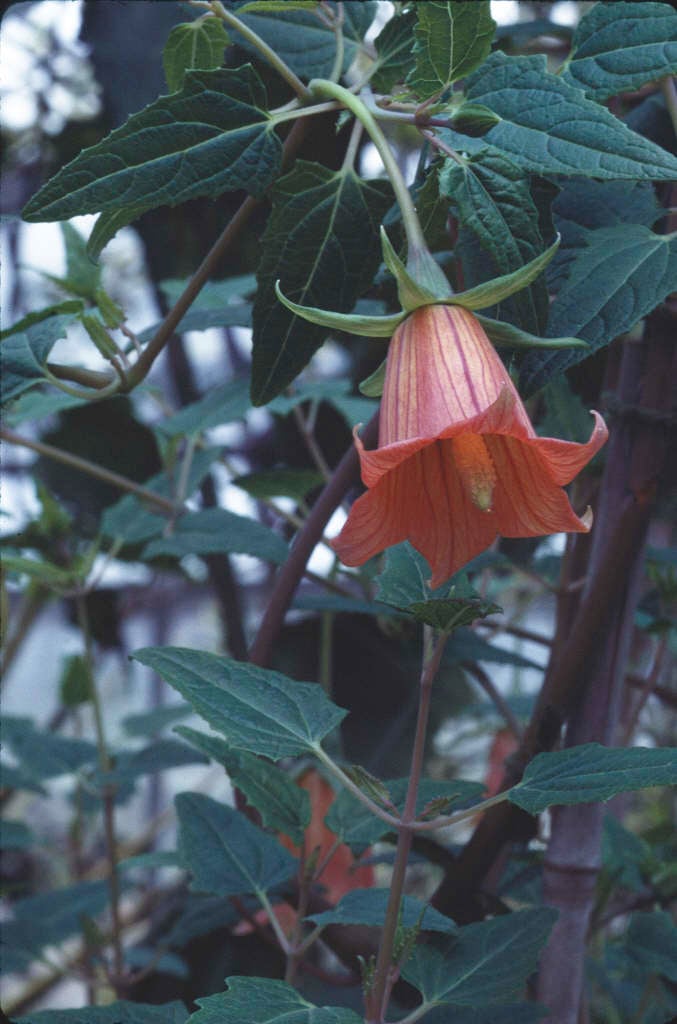Size
Ultimate height
1–1.5 metresTime to ultimate height
2–5 yearsUltimate spread
0.1–0.5 metresGrowing conditions
Moisture
Well–drainedpH
Acid, Alkaline, NeutralColour & scent
| Stem | Flower | Foliage | Fruit | |
| Spring | Green | |||
|---|---|---|---|---|
| Summer | Green | |||
| Autumn | Green | |||
| Winter | Orange Red |
Position
- Partial shade
Aspect
South–facing or East–facing
Exposure
Sheltered Hardiness
H2Botanical details
- Family
- Campanulaceae
- Native to GB / Ireland
- No
- Foliage
- Deciduous
- Habit
- Climbing
- Genus
Canarina are twining tuberous herbaceous perennials with simple leaves and one or more nodding bell-shaped flowers with 6 lobes
- Name status
Correct
- Plant range
- Canary Islands
How to grow
Cultivation
Under glass grow in peat-free, loam-based potting compost in bright filtered light with good ventilation. Water freely when in growth and keep completely dry when foliage yellows in late spring. Apply a balanced liquid fertiliser monthly when in growth. Pot on when dormant
Propagation
Propagate by seed at 15-18°C in spring
Suggested planting locations and garden types
- Cottage and informal garden
- Patio and container plants
- Wall side borders
Pruning
No pruning required
Pests
May be susceptible to glasshouse whitefly and glasshouse red spider mite
Diseases
Generally disease-free
Get involved
The Royal Horticultural Society is the UK’s leading gardening charity. We aim to enrich everyone’s life through plants, and make the UK a greener and more beautiful place.
